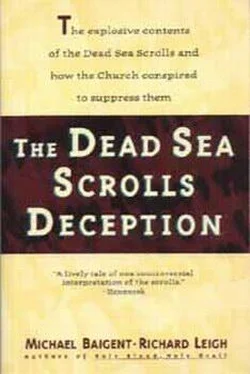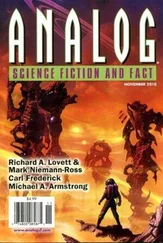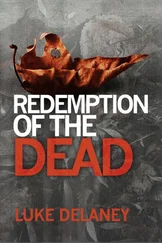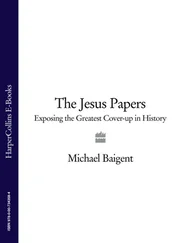De Vaux and the international team were also worried that the treasure inventoried in the ‘Copper Scroll’ might actually exist — might be a real treasure rather than an imaginary one. If it were indeed real, it would inevitably attract the attention of the Israeli government, who would almost certainly lay claim to it. Not only might this remove it from the authority of the international team. It might also trigger a major political crisis; for while Israel’s claim might be legitimate enough, much of the treasure, and the scroll specifying its location, would have been found in Jordanian territory.
If the treasure were real, moreover, there were theological grounds for concern. De Vaux and the international team had been intent on depicting the Qumran community as an isolated enclave, having no connection with public events, political developments or the ‘mainstream’ of 1st-century history. If the ‘Copper Scroll’ did indeed indicate where the actual contents of the Temple lay hidden, Qumran could no longer be so depicted. On the contrary, connections would become apparent between Qumran and the Temple, the centre and focus of all Judaic affairs. Qumran would no longer be a self-contained and insulated phenomenon, but an adjunct of something much broader — something that might encroach dangerously on the origins of Christianity. More disturbing still, if the ‘Copper Scroll’ referred to a real treasure, it could only be a treasure removed from the Temple in the wake of the ad 66 revolt. This would upset the ‘safe’ dating and chronology which the international team had established for the entire corpus of scrolls.
The combination of these factors dictated a cover-up. Allegro at first colluded in it, assuming that delays in releasing information about the ‘Copper Scroll’ would only be temporary. In consequence, he agreed not to mention anything of the scroll in the book he was preparing — his general introduction to the Qumran material, scheduled to be published by Penguin Books later in 1956. In the meantime, it was arranged, Father Milik would prepare a definitive translation of the ‘Copper Scroll’, which Allegro would follow with another ‘popular’ book pitched to the general public.
Allegro had consented to a temporary delay in releasing information about the ‘Copper Scroll’. He certainly didn’t expect the delay to prolong itself indefinitely. Still less did he expect the international team to defuse the scroll’s significance by dismissing the treasure it inventoried as purely fictitious. When Milik proceeded to do so, Allegro did not at first suspect any sort of conspiracy. In a letter to another of his colleagues, dated 23 April 1956, he gave vent to his impatience, but remained excited and optimistic, and referred to Milik with cavalier disdain:
Heaven alone knows when, if ever, our friends in Jerusalem are going to release the news of the copper scroll. It’s quite fabulous (Milik thinks literally so, but he’s a clot). Just imagine the agony of having to let my [book] go to the press without being able to breathe a word of it. 27
A month later, Allegro wrote to Gerald Lankester Harding, in charge of the Jordanian Department of Antiquities, and de Vaux’s colleague. Perhaps he already sensed something was in the wind and was trying to circumvent de Vaux personally, to appeal to an alternative and non-Catholic authority. In any case, he pointed out that as soon as the press release pertaining to the ‘Copper Scroll’ was issued, reporters would descend en masse. To deal with this contingency, he suggested that Harding, the international team and everyone else involved close ranks and adopt a ‘party line’ towards the media. On 28 May, Harding, who had been warned and briefed by de Vaux, wrote back. The treasure listed in the ‘Copper Scroll’, he said, didn’t appear to be connected with the Qumran community at all. Nor could it possibly be a real cache — the value of the items cited was too great. The ‘Copper Scroll’ was merely a collation of ‘buried treasure’ legends. 28Four days later, on 1 June, the official press release pertaining to the ‘Copper Scroll’ was issued. It echoed Harding’s assertions. The scroll was said to contain ‘a collection of traditions about buried treasure’. 29
Allegro appears to have been stunned by this duplicity. On 5 June, he wrote to Harding, ‘I don’t quite follow whether this incredible “traditions” gag you and your chums are putting out is for newspaper, government, Bedu or my consumption. Or you may even believe it, bless you.’ 30At the same time, however, he was still appealing to Harding as a possible ally against the phalanx of Catholic interests. Did not Harding think, he asked, that ‘a bit more ready information on these scroll matters might not be a good idea? It’s well known now that the copper scroll was completely open in January, and despite your attempts to squash it, it is also known that my translation went to you immediately… A little general information… saves a good deal of rumour-mongering, which has now taken on a somewhat sinister note.’ 31He adds that ‘the feeling would get around that the Roman Catholic brethren of the team, by far in the majority, were trying to hide things’. 32The same point is stressed in a letter to Frank Cross in August: ‘In lay quarters it is firmly believed that the Roman Church in de Vaux and Co. are intent on suppressing this material.’ 33To de Vaux personally, he observed drily, ‘I notice that you have been careful to keep it dark that the treasure is Temple possessions.’ 34
Allegro had originally believed a full translation of the text of the ‘Copper Scroll’ would be released fairly promptly. It must now have been clear to him that this wasn’t going to occur. In fact, four years were to pass before a translation of the text appeared, and then it was published by Allegro himself, who by that time had lost all patience with the international team. He still would have preferred to publish his popular book after the ‘official’ translation, scheduled to be done by Father Milik, and was led to believe this would be possible. Milik’s translation, however, was suddenly and unexpectedly subject to further delays, which may well have been deliberate. Allegro was asked to postpone his own publication accordingly. At one point, indeed, this request, transmitted through an intermediary, appears to have been attended by threats — from a member of the team whose name cannot be divulged for legal reasons. Allegro replied that, ‘As conveyed to me, the request was accompanied by the expression of some rather strange sentiments originating, it was said, from yourself and those for whom you were acting. There appeared even to be some forecast of consequences were I not to accede to this request.’ 35The recipient of this letter wrote back sweetly that Allegro must not imagine himself the victim of persecution. 36Thus, when Allegro went ahead with his own publication, he found himself in the embarrassing position of seeming to have pre-empted the work of a colleague. In effect, he had been manoeuvred into providing the international team with further ammunition to use against him — and, of course, to alienate him further from them. Milik’s translation, in fact, did not appear until 1962 — two years after Allegro’s, six years after the ‘Copper Scroll’ had been sliced open in Manchester and ten years after it had been discovered.
In the meantime, The Dead Sea Scrolls — Allegro’s popular book on the Qumran material, from which all mention of the ‘Copper Scroll’ had been withheld — had appeared in the late summer of 1956, some five months after the controversy surrounding his radio broadcasts. The controversy, and especially the letter to The Times, had, as Allegro predicted, ensured the book’s success. The first edition of forty thousand copies sold out in seventeen days, and Edmund Wilson reviewed it enthusiastically on the BBC. The Dead Sea Scrolls, now in its second edition and nineteenth printing, continues to be one of the best introductions to the Qumran material. De Vaux did not see it that way, and sent Allegro a lengthy critique. In his reply, dated 16 September 1956, Allegro stated that ‘you are unable to treat Christianity any more in an objective light; a pity, but understandable in the circumstances’. 37In the same letter, he draws attention to a text among the scrolls which refers to the ‘son of God’:
Читать дальше












